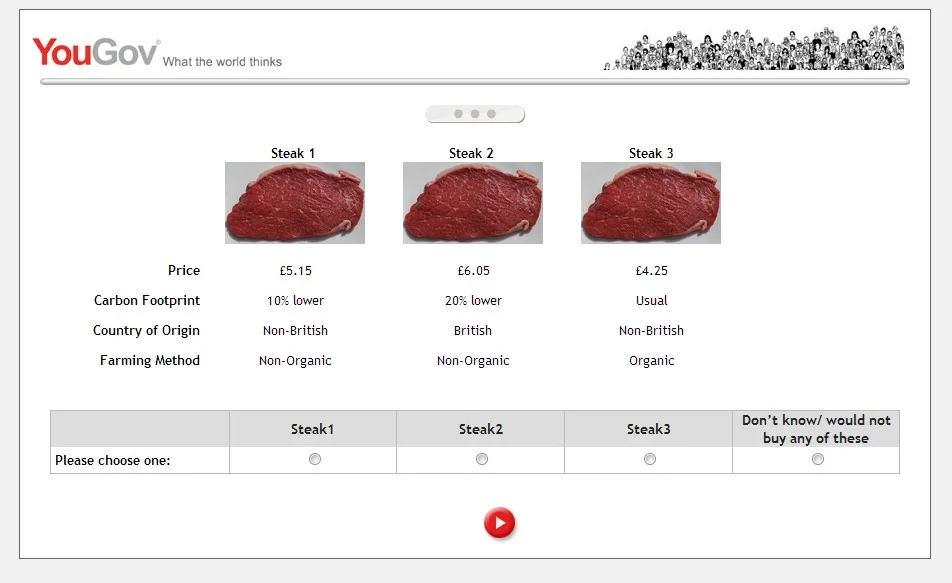As a student on the Cambridge Masters Programme in Environmenal Policy, Laura Plant focussed her thesis on whether consumers are willing to pay a higher price for beef that has a lower carbon footprint.
In research conducted with the YouGov-Cambridge Programme, results from this study suggest that consumers will pay on average £0.23 more for a steak labelled as '20% lower in carbon' than a steak with no label. This finding helps contribute to the debate as to whether food manufacturers should be required to put carbon footprint labels on their produce.
A hypothetical choice experiment was used to elicit consumers’ willingness to pay (WTP) for a reduced carbon footprint of a beef steak. Significant positive values were obtained for the two carbon labels, one describing a 10% reduction and the other a 20% reduction in carbon footprint compared to conventionally produced steak.

The willingness to pay for a 20% reduction in carbon footprint was on average £0.23 (n=1387) for a steak costing approximately £5. Regression analysis found that individuals willing to pay more for carbon labels were more likely to be male, younger, have a high monthly beef consumption and affiliate themselves with the liberal democrat party.
The relationship between willingness to pay and percentage carbon footprint reduction was found not to be linear with a 10% carbon label only obtaining an average willingness to pay of £0.02 (10 times less than the 20% label). Motivations for this threshold-type function of WTP for reducing carbon emissions may be the desire to offset environmentally harmful behaviour or as a result of a ‘buy-in’ mentality.
The significance for policy makers is that carbon footprint information on food has the potential to stimulate individuals into privately providing some fraction of the nations CO2 emissions reductions targets.
The study also found a substantial WTP of £1.75 for a British label over the ‘non-British’ labelled steak; this may be particularly high due to the 2013 horsemeat scandal. Organic labels yielded a willingness to pay of £0.50 over a non-organic labeled steak.
Acknowledgements
I am hugely grateful to Joel Rogers and the YouGov team for helping develop the survey and providing data from their panel of respondents. Thanks to Luca Panzone at Manchester University for help with preliminary data analysis, to the Livesey family for accommodation in the North, to Andreas Kontoleon for comments, and to Shaun Larcom for encouragement and support throughout the research.







